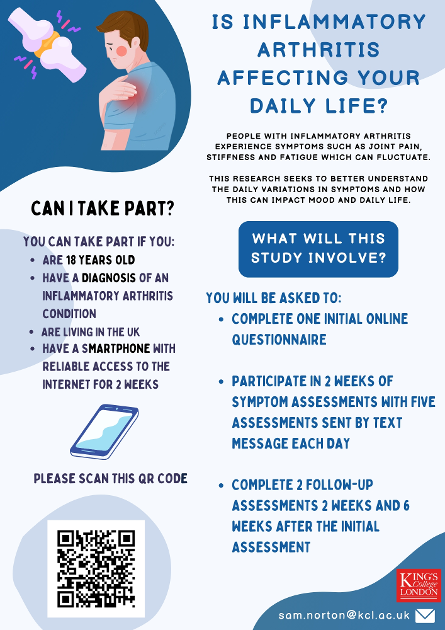Researchers led by Dr Sam Norton at King's College London would like to invite you to take part in research exploring the impact of inflammatory arthritis on daily life.
People with inflammatory arthritis (such as rheumatoid arthritis, psoriatic arthritis, and spondylarthritis) typically experience symptoms such as pain, joint stiffness, and fatigue that can fluctuate dramatically over time. They are conducting this study to better understand how symptoms fluctuate during the day, and how symptoms impact on people’s mood and daily life. This will help to understand how best to measure symptom variability and the impacts of inflammatory arthritis on daily life; for example, by your doctor to monitor the effectiveness of starting a new treatment or during a period of disease flare.
This study involves the completion of: i) short online survey; ii) 2 weeks of symptom assessments with 5 brief assessments each day sent by text message to your phone; iii) brief follow-up surveys 2 weeks and 6 weeks after starting symptom assessments. For more information see here t.co/nxxnkSOsl2
